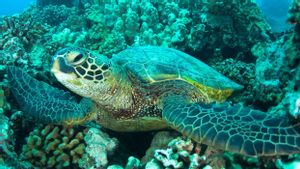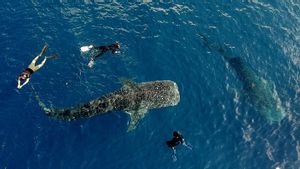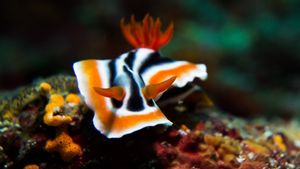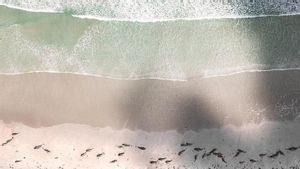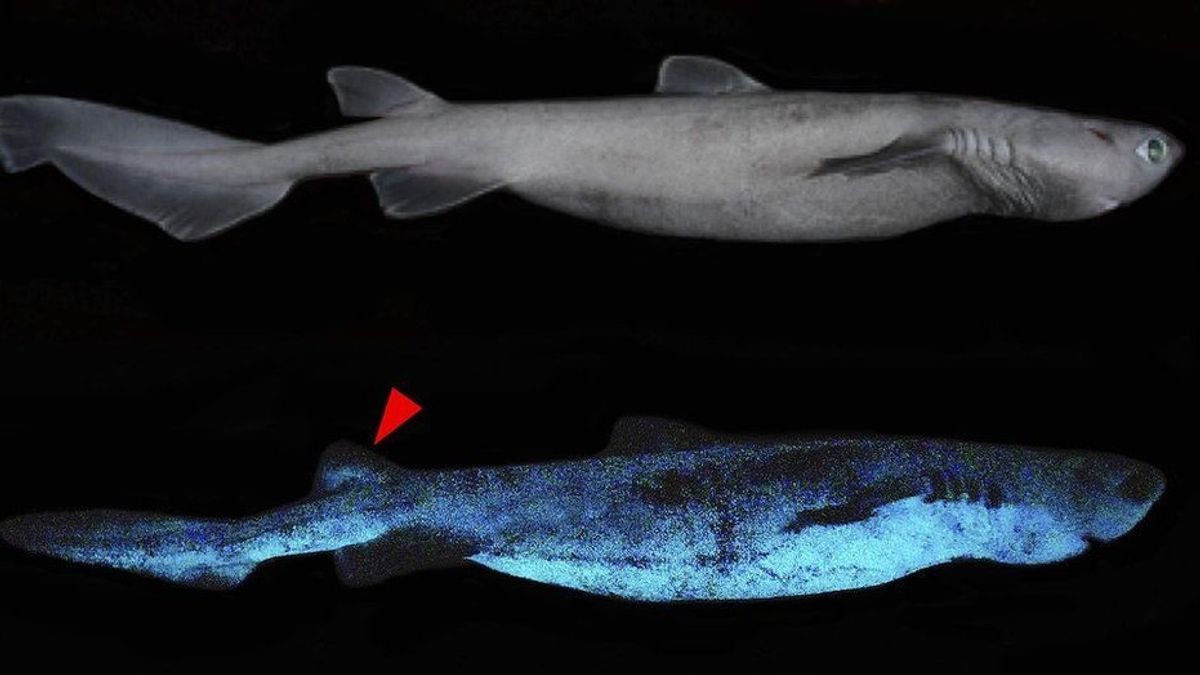
JAKARTA - Scientists say they have found that three species of deep-sea sharks that live in New Zealand can glow in the dark.
The species was collected from the Chatham Rise, an area of the seabed in eastern New Zealand, in January last year, according to the study.
One of these, the kite-fin shark, is now the largest known luminous vertebrate and can grow to a length of 180 cm (5 feet 11 inches).
Bioluminescence was also confirmed to be found in the black belly lantern shark and south lantern shark.
The three species are already known to marine biologists, but this is the first time the phenomenon of bioluminescence, a light-emitting organism, has been identified in it.
Although many sea animals, as well as some insects such as fireflies, produce their own light, this is the first time it has been found in larger sharks.
The researchers think the shark's glowing underside could help them hide from predators or other threats below them.
They say bioluminescence is achieved through the thousands of photophores (light-producing cells) that are located in the shark's skin.
The three species studied inhabit a space called the mesopelagic zone, often called the twilight zone, which ranges from a depth of 200 meters to 1.000 meters (the maximum depth reached by sunlight).
"The species faces an environment with nowhere to hide, therefore counter-illumination is needed as a form of camouflage", the researchers explained, reporting to the BBC.
SEE ALSO:
In the study, scientists from the Université Catholique de Louvain in Belgium and the National Institute for Water and Atmospheric Research in New Zealand explained the importance of bioluminescence for sea creatures.
"This is often seen as a spectacular, but an unusual event in the ocean. However, given the vastness of the deep sea and the presence of luminous organisms in this zone, it is now becoming increasingly clear that producing light at depths must play an important role. Composing the largest ecosystem on our planet", the researchers said.
The English, Chinese, Japanese, Arabic, and French versions are automatically generated by the AI. So there may still be inaccuracies in translating, please always see Indonesian as our main language. (system supported by DigitalSiber.id)


